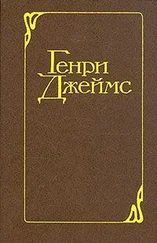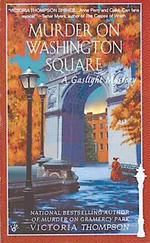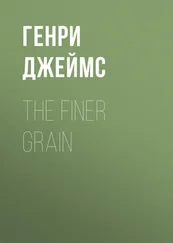Генри Джеймс - Washington Square
Здесь есть возможность читать онлайн «Генри Джеймс - Washington Square» — ознакомительный отрывок электронной книги совершенно бесплатно, а после прочтения отрывка купить полную версию. В некоторых случаях можно слушать аудио, скачать через торрент в формате fb2 и присутствует краткое содержание. Жанр: foreign_antique, foreign_prose, Зарубежные любовные романы, на английском языке. Описание произведения, (предисловие) а так же отзывы посетителей доступны на портале библиотеки ЛибКат.
- Название:Washington Square
- Автор:
- Жанр:
- Год:неизвестен
- ISBN:нет данных
- Рейтинг книги:3 / 5. Голосов: 1
-
Избранное:Добавить в избранное
- Отзывы:
-
Ваша оценка:
- 60
- 1
- 2
- 3
- 4
- 5
Washington Square: краткое содержание, описание и аннотация
Предлагаем к чтению аннотацию, описание, краткое содержание или предисловие (зависит от того, что написал сам автор книги «Washington Square»). Если вы не нашли необходимую информацию о книге — напишите в комментариях, мы постараемся отыскать её.
Washington Square — читать онлайн ознакомительный отрывок
Ниже представлен текст книги, разбитый по страницам. Система сохранения места последней прочитанной страницы, позволяет с удобством читать онлайн бесплатно книгу «Washington Square», без необходимости каждый раз заново искать на чём Вы остановились. Поставьте закладку, и сможете в любой момент перейти на страницу, на которой закончили чтение.
Интервал:
Закладка:
They sat there for some time. He was very amusing. He asked her about the people that were near them; he tried to guess who some of them were, and he made the most laughable mistakes. He criticised them very freely, in a positive, off-hand way. Catherine had never heard any one—especially any young man—talk just like that. It was the way a young man might talk in a novel; or better still, in a play, on the stage, close before the footlights, looking at the audience, and with every one looking at him, so that you wondered at his presence of mind. And yet Mr. Townsend was not like an actor; he seemed so sincere, so natural. This was very interesting; but in the midst of it Marian Almond came pushing through the crowd, with a little ironical cry, when she found these young people still together, which made every one turn round, and cost Catherine a conscious blush. Marian broke up their talk, and told Mr. Townsend—whom she treated as if she were already married, and he had become her cousin—to run away to her mother, who had been wishing for the last half-hour to introduce him to Mr. Almond.
“We shall meet again!” he said to Catherine as he left her, and Catherine thought it a very original speech.
Her cousin took her by the arm, and made her walk about. “I needn’t ask you what you think of Morris!” the young girl exclaimed.
“Is that his name?”
“I don’t ask you what you think of his name, but what you think of himself,” said Marian.
“Oh, nothing particular!” Catherine answered, dissembling for the first time in her life.
“I have half a mind to tell him that!” cried Marian. “It will do him good. He’s so terribly conceited.”
“Conceited?” said Catherine, staring.
“So Arthur says, and Arthur knows about him.”
“Oh, don’t tell him!” Catherine murmured imploringly.
“Don’t tell him he’s conceited? I have told him so a dozen times.”
At this profession of audacity Catherine looked down at her little companion in amazement. She supposed it was because Marian was going to be married that she took so much on herself; but she wondered too, whether, when she herself should become engaged, such exploits would be expected of her.
Half an hour later she saw her Aunt Penniman sitting in the embrasure of a window, with her head a little on one side, and her gold eye-glass raised to her eyes, which were wandering about the room. In front of her was a gentleman, bending forward a little, with his back turned to Catherine. She knew his back immediately, though she had never seen it; for when he had left her, at Marian’s instigation, he had retreated in the best order, without turning round. Morris Townsend—the name had already become very familiar to her, as if some one had been repeating it in her ear for the last half-hour—Morris Townsend was giving his impressions of the company to her aunt, as he had done to herself; he was saying clever things, and Mrs. Penniman was smiling, as if she approved of them. As soon as Catherine had perceived this she moved away; she would not have liked him to turn round and see her. But it gave her pleasure—the whole thing. That he should talk with Mrs. Penniman, with whom she lived and whom she saw and talked with every day—that seemed to keep him near her, and to make him even easier to contemplate than if she herself had been the object of his civilities; and that Aunt Lavinia should like him, should not be shocked or startled by what he said, this also appeared to the girl a personal gain; for Aunt Lavinia’s standard was extremely high, planted as it was over the grave of her late husband, in which, as she had convinced every one, the very genius of conversation was buried. One of the Almond boys, as Catherine called him, invited our heroine to dance a quadrille, and for a quarter of an hour her feet at least were occupied. This time she was not dizzy; her head was very clear. Just when the dance was over, she found herself in the crowd face to face with her father. Dr. Sloper had usually a little smile, never a very big one, and with his little smile playing in his clear eyes and on his neatly-shaved lips, he looked at his daughter’s crimson gown.
“Is it possible that this magnificent person is my child?” he said.
You would have surprised him if you had told him so; but it is a literal fact that he almost never addressed his daughter save in the ironical form. Whenever he addressed her he gave her pleasure; but she had to cut her pleasure out of the piece, as it were. There were portions left over, light remnants and snippets of irony, which she never knew what to do with, which seemed too delicate for her own use; and yet Catherine, lamenting the limitations of her understanding, felt that they were too valuable to waste and had a belief that if they passed over her head they yet contributed to the general sum of human wisdom.
“I am not magnificent,” she said mildly, wishing that she had put on another dress.
“You are sumptuous, opulent, expensive,” her father rejoined. “You look as if you had eighty thousand a year.”
“Well, so long as I haven’t—” said Catherine illogically. Her conception of her prospective wealth was as yet very indefinite.
“So long as you haven’t you shouldn’t look as if you had. Have you enjoyed your party?”
Catherine hesitated a moment; and then, looking away, “I am rather tired,” she murmured. I have said that this entertainment was the beginning of something important for Catherine. For the second time in her life she made an indirect answer; and the beginning of a period of dissimulation is certainly a significant date. Catherine was not so easily tired as that.
Nevertheless, in the carriage, as they drove home, she was as quiet as if fatigue had been her portion. Dr. Sloper’s manner of addressing his sister Lavinia had a good deal of resemblance to the tone he had adopted towards Catherine.
“Who was the young man that was making love to you?” he presently asked.
“Oh, my good brother!” murmured Mrs. Penniman, in deprecation.
“He seemed uncommonly tender. Whenever I looked at you, for half an hour, he had the most devoted air.”
“The devotion was not to me,” said Mrs. Penniman. “It was to Catherine; he talked to me of her.”
Catherine had been listening with all her ears. “Oh, Aunt Penniman!” she exclaimed faintly.
“He is very handsome; he is very clever; he expressed himself with a great deal—a great deal of felicity,” her aunt went on.
“He is in love with this regal creature, then?” the Doctor inquired humorously.
“Oh, father,” cried the girl, still more faintly, devoutly thankful the carriage was dark.
“I don’t know that; but he admired her dress.”
Catherine did not say to herself in the dark, “My dress only?” Mrs. Penniman’s announcement struck her by its richness, not by its meagreness.
“You see,” said her father, “he thinks you have eighty thousand a year.”
“I don’t believe he thinks of that,” said Mrs. Penniman; “he is too refined.”
“He must be tremendously refined not to think of that!”
“Well, he is!” Catherine exclaimed, before she knew it.
“I thought you had gone to sleep,” her father answered. “The hour has come!” he added to himself. “Lavinia is going to get up a romance for Catherine. It’s a shame to play such tricks on the girl. What is the gentleman’s name?” he went on, aloud.
“I didn’t catch it, and I didn’t like to ask him. He asked to be introduced to me,” said Mrs. Penniman, with a certain grandeur; “but you know how indistinctly Jefferson speaks.” Jefferson was Mr. Almond. “Catherine, dear, what was the gentleman’s name?”
For a minute, if it had not been for the rumbling of the carriage, you might have heard a pin drop.
Читать дальшеИнтервал:
Закладка:
Похожие книги на «Washington Square»
Представляем Вашему вниманию похожие книги на «Washington Square» списком для выбора. Мы отобрали схожую по названию и смыслу литературу в надежде предоставить читателям больше вариантов отыскать новые, интересные, ещё непрочитанные произведения.
Обсуждение, отзывы о книге «Washington Square» и просто собственные мнения читателей. Оставьте ваши комментарии, напишите, что Вы думаете о произведении, его смысле или главных героях. Укажите что конкретно понравилось, а что нет, и почему Вы так считаете.












